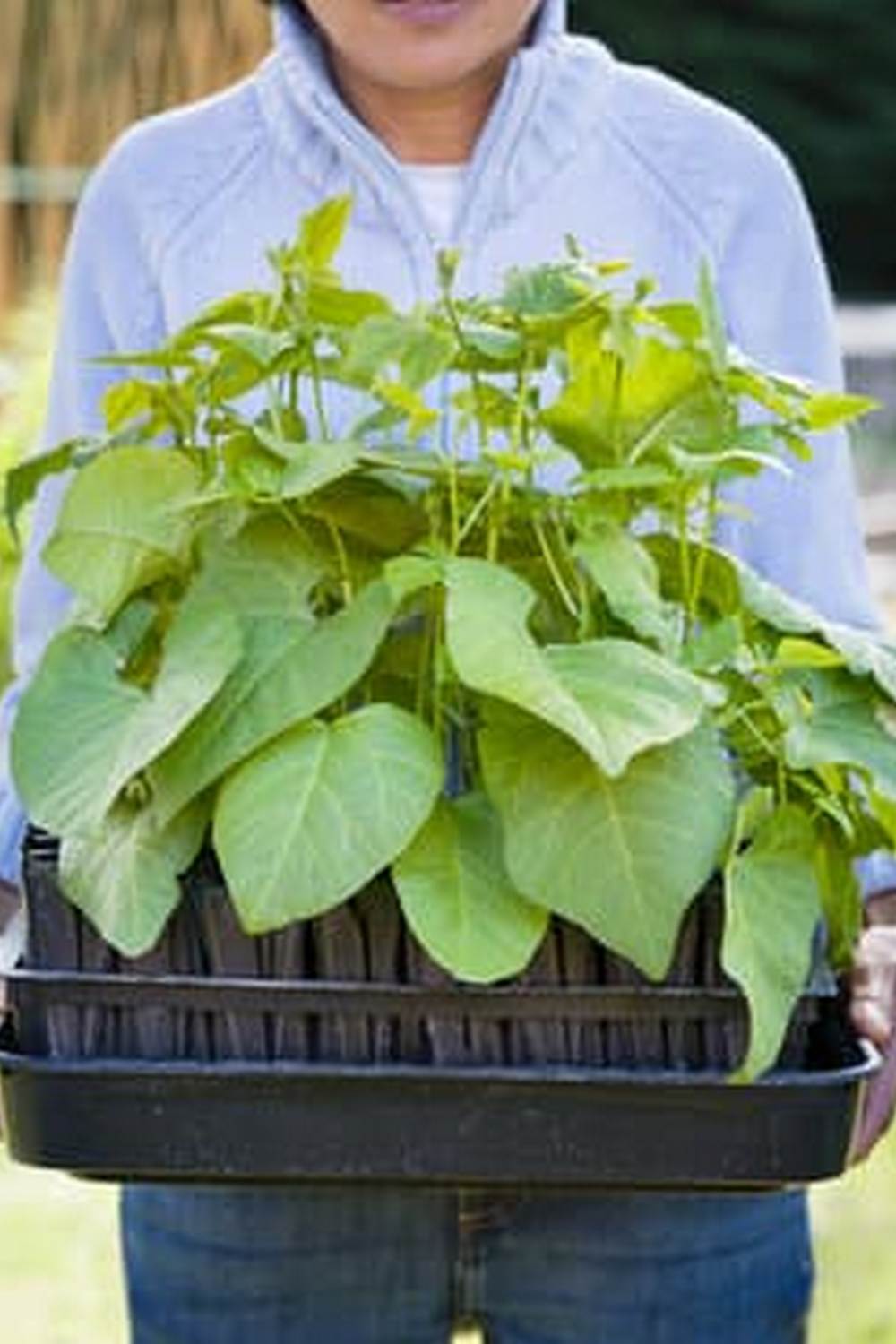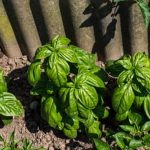Using shredded cedar mulch in vegetable gardens can offer numerous benefits that contribute to the overall health and productivity of your crops. Cedar mulch, derived from the bark of cedar trees, not only helps retain moisture in the soil and suppresses weeds but also adds nutrients as it decomposes. This natural and eco-friendly option can be a great addition to any garden.
Shredded cedar mulch is known for its ability to regulate soil temperature, preventing extreme fluctuations that can stress plants. Its natural properties also make it resistant to decay and pests, providing a long-lasting solution for gardeners looking to improve their soil quality. Additionally, cedar mulch is aesthetically pleasing, adding a clean and tidy look to your vegetable garden while serving multiple functional purposes.
By understanding the composition and benefits of shredded cedar mulch, gardeners can make informed decisions when choosing the right mulch for their vegetable gardens. Factors such as texture, color, and pH level should be considered when selecting mulch to ensure optimal growth for your crops. With proper application and maintenance techniques, shredded cedar mulch can significantly enhance soil health and promote robust plant growth throughout the season.
What Is Shredded Cedar Mulch
Shredded cedar mulch is a popular choice for vegetable gardens due to its numerous benefits. This type of mulch is made from shredded cedar trees, providing a natural and organic option for gardeners looking to improve their soil. The composition of shredded cedar mulch includes the bark, wood, and needles of the cedar tree, which break down slowly over time, enriching the soil with essential nutrients.
One of the key properties of shredded cedar mulch is its ability to regulate soil temperature. By acting as an insulating layer, cedar mulch helps maintain more consistent soil temperatures throughout the day and night. This can protect delicate plant roots from extreme heat or cold, ensuring optimal growing conditions for vegetables in your garden. Additionally, cedar mulch has natural oils that act as insect repellents, helping to deter pests that may damage your crops.
When choosing shredded cedar mulch for your vegetable garden, it is important to consider factors such as freshness, color, and texture. Fresh mulch will provide more nutrients to your plants compared to aged or decomposed mulch. Opt for a rich reddish-brown color that indicates high-quality cedar wood.
The texture of the mulch should be fine enough to hold moisture but not too compacted to prevent water penetration. By selecting the right shredded cedar mulch based on these properties, you can ensure a healthy and thriving vegetable garden.
| Benefits | Properties |
|---|---|
| Regulates soil temperature | Natural oils act as insect repellents |
| Slowly breaks down enriching soil with nutrients | Freshness enhances nutrient content |
Choosing the Right Shredded Cedar Mulch
When it comes to choosing the right shredded cedar mulch for your vegetable garden, there are several factors to consider in order to maximize its benefits. Here are some key considerations to keep in mind:
- Quality: Ensure that the shredded cedar mulch you choose is of high quality. Look for mulch that is finely shredded and free of any contaminants or chemicals that could potentially harm your vegetable plants.
- Size and Texture: Consider the size and texture of the mulch particles. Finer textured mulch will break down faster, adding organic matter to the soil more quickly, while coarser mulch may provide better insulation and weed suppression.
- Aroma: Cedar mulch has a distinct aroma that can act as a natural pest repellent. If you are sensitive to strong scents, you may want to consider this factor when selecting shredded cedar mulch for your vegetable garden.
In addition to these factors, it’s also important to think about the specific needs of your vegetable plants when choosing shredded cedar mulch. Some plants may benefit from a thicker layer of mulch for added insulation and moisture retention, while others may require lighter coverage to prevent issues like root rot. By taking into account these considerations, you can ensure that you select the right shredded cedar mulch for your vegetable garden.
Lastly, be mindful of any potential allergies or sensitivities you or your family members may have when using shredded cedar mulch in your vegetable garden. While cedar mulch is generally safe for most people, it’s always best to take precautions if you have any concerns about allergic reactions or respiratory issues related to wood products. By considering all these factors, you can make an informed decision when choosing shredded cedar mulch for your vegetable garden.
Benefits of Shredded Cedar Mulch in Vegetable Gardens
Shredded cedar mulch offers numerous benefits when used in vegetable gardens. Not only does it provide a protective layer for the soil, but it also aids in retaining moisture, suppressing weeds, and regulating soil temperature. Additionally, cedar mulch is known for its natural insect-repelling properties, which can help keep pests at bay without the need for harmful chemicals. This makes it an environmentally-friendly option for gardeners looking to maintain a healthy and sustainable garden.
Improving Soil Health
One of the key benefits of using shredded cedar mulch in vegetable gardens is its ability to improve soil health. As the mulch breaks down over time, it adds valuable organic matter to the soil, enriching it with essential nutrients.
This promotes earthworm activity and beneficial microbial growth, resulting in a healthier and more fertile soil environment for plants to thrive in. By enhancing the overall quality of the soil, shredded cedar mulch can lead to better plant growth and higher crop yields.
Promoting Crop Growth
In addition to improving soil health, shredded cedar mulch can also benefit crop growth in vegetable gardens. The mulch helps create an optimal growing environment by providing insulation against extreme temperatures and reducing water evaporation from the soil. This allows plants to maintain consistent moisture levels and root temperature, which is crucial for healthy growth and development.
Furthermore, by suppressing weed growth that competes with crops for nutrients and water, cedar mulch helps ensure that your vegetables have access to essential resources for optimal growth. Overall, incorporating shredded cedar mulch into your vegetable garden can promote healthier plants and bountiful harvests.
How to Properly Apply Shredded Cedar Mulch
Shredded cedar mulch is a popular choice for mulching vegetable gardens due to its numerous benefits. Not only does it enhance the aesthetic appeal of the garden, but it also plays a crucial role in improving soil health and promoting crop growth. When properly applied, shredded cedar mulch can help retain moisture in the soil, suppress weed growth, regulate soil temperature, and prevent erosion.
To start using shredded cedar mulch in your vegetable garden, begin by preparing the area where you will be applying the mulch. Make sure the soil is well-hydrated and free of weeds. It is recommended to apply a layer of compost or fertilizer before adding the mulch to provide essential nutrients to the plants.
Next, spread a layer of shredded cedar mulch around your vegetable plants, making sure to leave a small space around the stems to prevent moisture-related issues such as rotting. The ideal thickness of the mulch layer should be around 2-3 inches. Avoid piling up the mulch against plant stems as this can create a favorable environment for pests and diseases.
Regularly check on your shredded cedar mulch throughout the growing season to maintain its effectiveness. If you notice any signs of decay or mold, remove and replace the affected areas. By following these steps and properly maintaining your shredded cedar mulch, you can ensure that your vegetable garden thrives with improved soil quality and healthier plants.
| Benefits | How-to Tips |
|---|---|
| Enhances aesthetic appeal | Prepare area by removing weeds |
| Improves soil health | Add layer of compost or fertilizer before applying |
| Promotes crop growth | Spread mulch leaving space around plant stems |
Maintaining Shredded Cedar Mulch
Shredded cedar mulch is not only beneficial for vegetable gardens, but it also provides a natural and aesthetically pleasing look to your garden. However, proper maintenance is essential to ensure that you get the most out of your mulch. Here are some tips on how to maintain shredded cedar mulch effectively:
- Regularly check the depth: It is important to monitor the thickness of the mulch layer in your vegetable garden. Over time, the mulch may decompose or get blown away by wind or washed away by rain. Maintaining a consistent depth of around 2-3 inches will help retain moisture, suppress weed growth, and regulate soil temperature.
- Address any mold or fungus growth: In damp conditions, mold or fungus may start to develop on the surface of your shredded cedar mulch. To prevent this from happening, make sure to aerate the mulch occasionally by raking it to allow air circulation. Additionally, avoid overwatering your garden to reduce moisture levels and inhibit mold growth.
- Replace as needed: Despite its durability, shredded cedar mulch will eventually break down over time. Keep an eye on the condition of your mulch and replace it every 1-2 years as needed. This will not only improve its effectiveness in providing insulation and nutrients but also enhance the overall appearance of your vegetable garden.
By following these maintenance tips, you can ensure that your shredded cedar mulch remains in good condition and continues to benefit your vegetable garden for years to come. Proper care and attention to detail will help you make the most out of this natural and sustainable gardening solution.
Potential Drawbacks of Using Shredded Cedar Mulch in Vegetable Gardens
Nitrogen Depletion
One of the potential drawbacks of using shredded cedar mulch in vegetable gardens is the issue of nitrogen depletion in the soil. Cedar mulch, especially fresh mulch, has a high carbon content which can compete with plants for nitrogen as it decomposes. This competition for nitrogen can lead to nutrient deficiencies in your vegetables, affecting their growth and overall health.
To address this concern, it is recommended to use aged cedar mulch or mix in some nitrogen-rich fertilizer when applying fresh cedar mulch to vegetable gardens. This will help balance out the nitrogen levels in the soil.
Soil Acidity
Another issue that may arise from using shredded cedar mulch in vegetable gardens is an increase in soil acidity. Cedar mulch naturally contains compounds that can lower the pH of the soil over time, which may not be ideal for certain vegetable crops that prefer neutral or slightly acidic conditions.
To counteract this potential problem, it is important to monitor the pH levels of your soil regularly when using cedar mulch and add amendments as needed to maintain a favorable balance for your vegetables.
Pest Attraction
While cedar mulch is known for its insect-repelling properties, it can also attract certain pests like termites and carpenter ants, especially if the mulch is not properly maintained or if there are existing pest issues in the area. These pests can cause damage to wooden structures nearby or even invade your vegetable garden, posing a threat to your crops.
To prevent pest attraction, make sure to keep your shredded cedar mulch dry and free of debris where pests might hide. Regularly inspecting your garden for signs of infestation and taking appropriate measures will help mitigate this risk.
Alternative Mulching Options for Vegetable Gardens
In conclusion, while shredded cedar mulch offers numerous benefits for vegetable gardens, there are alternative mulching options that gardeners may consider based on their specific needs and preferences. Exploring other types of mulch can provide a variety of benefits and may be more suitable for certain garden environments. However, it is essential to weigh the pros and cons of each option before making a decision.
One alternative to shredded cedar mulch is straw, which is readily available and affordable. Straw mulch helps retain moisture in the soil, regulate temperature, and suppress weed growth. Another option is grass clippings, which can be used as mulch after allowing them to dry thoroughly. Grass clippings provide nutrients to the soil as they decompose and help improve soil structure.
Wood chips from hardwood trees are another alternative mulching option for vegetable gardens. Wood chips decompose slowly, providing long-lasting benefits to the soil. They also help prevent erosion and create a habitat for beneficial organisms. Each type of mulch has its own advantages and considerations, so gardeners should choose based on their specific gardening goals and conditions.
Frequently Asked Questions
Can I Put Cedar Mulch on and Around My Tomato Plants?
Cedar mulch can be used on and around tomato plants to help retain moisture, regulate soil temperature, and reduce weed growth. However, it’s important to ensure proper ventilation to prevent mold growth.
Is Cedar Good for Vegetable Gardens?
Cedar is generally considered good for vegetable gardens due to its natural resistance to insects and decay. It also has a pleasant scent and adds aesthetic value to the garden. Just be sure not to use chemically-treated cedar products.
When Not to Use Cedar Mulch?
It is not recommended to use cedar mulch in areas where pets or young children frequently play, as cedar can be toxic if ingested in large quantities. Additionally, avoid using cedar mulch near water sources as it may leach harmful chemicals into the water.

If you’re looking to get into vegetable gardening, or are just looking for some tips on how to make your current garden better, then you’ve come to the right place! My name is Ethel and I have been gardening for years. In this blog, I’m going to share with you some of my best tips on how to create a successful vegetable garden.





